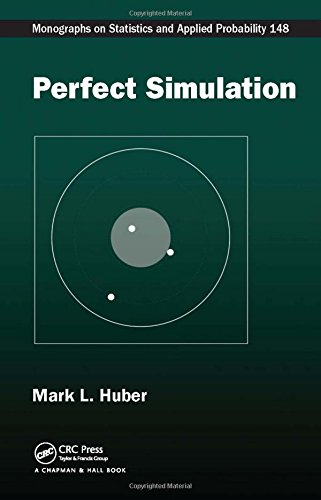

Most ebook files are in PDF format, so you can easily read them using various software such as Foxit Reader or directly on the Google Chrome browser.
Some ebook files are released by publishers in other formats such as .awz, .mobi, .epub, .fb2, etc. You may need to install specific software to read these formats on mobile/PC, such as Calibre.
Please read the tutorial at this link: https://ebookbell.com/faq
We offer FREE conversion to the popular formats you request; however, this may take some time. Therefore, right after payment, please email us, and we will try to provide the service as quickly as possible.
For some exceptional file formats or broken links (if any), please refrain from opening any disputes. Instead, email us first, and we will try to assist within a maximum of 6 hours.
EbookBell Team

4.7
36 reviewsExact sampling, specifically coupling from the past (CFTP), allows users to sample exactly from the stationary distribution of a Markov chain. During its nearly 20 years of existence, exact sampling has evolved into perfect simulation, which enables high-dimensional simulation from interacting distributions.
Perfect Simulation illustrates the application of perfect simulation ideas and algorithms to a wide range of problems. The book is one of the first to bring together research on simulation from statistics, physics, finance, computer science, and other areas into a unified framework. You will discover the mechanisms behind creating perfect simulation algorithms for solving an array of problems.
The author describes numerous protocol methodologies for designing algorithms for specific problems. He first examines the commonly used acceptance/rejection (AR) protocol for creating perfect simulation algorithms. He then covers other major protocols, including CFTP; the Fill, Machida, Murdoch, and Rosenthal (FMMR) method; the randomness recycler; retrospective sampling; and partially recursive AR, along with multiple variants of these protocols. The book also shows how perfect simulation methods have been successfully applied to a variety of problems, such as Markov random fields, permutations, stochastic differential equations, spatial point processes, Bayesian posteriors, combinatorial objects, and Markov processes.